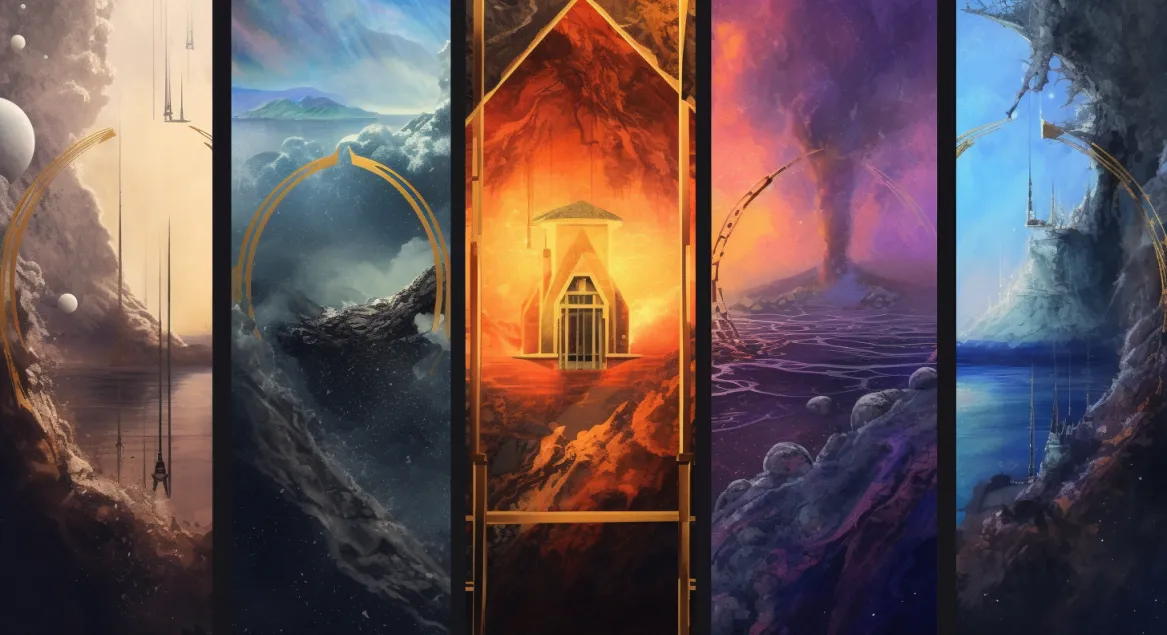Great GM v1
After gaming for over 30 years with a large portion from behind the screen I am on a mission to hone my skills. I have just started my second read through of Guy Sclanders book titled The Practical Guide to becoming a Great GM and it is simple amazing. I am not sure I have enough words for what a great job he does. Many of the points and topics he brings up have been in my game for a long time, while others I am kicking myself for never using. I am using what I know and what I am reading to set my road map and strategy for gaming moving forward.
Chapter One
Personal Focus
Ten things I wish I knew before I started GMing
Ten things I wish I knew before I started GMing
1. You don’t need to know all the rules – rely on your judgement after understanding the core rules.
2. It’s a collective story – you are not solely responsible for telling it.
3. You don’t have to stick to the numbers as written – just because the books list a value doesn’t mean you can’t change it.
4. Never be afraid to run away or surrender – monsters and NPCs should try to stay alive, not fight to the death.
5. Everyone should have a goal – all monsters and NPCs need a goal: living, growing, making money, etc.
6. The game is meant to be fun – you should have fun doing this.
7. You don’t need extra stuff to play – you need a rulebook and that’s it. No other books or dice accessories, etc., are needed. They are nice to have, though, and may enhance a game, if used correctly.
8. Not everyone is going to like the way you run your game – find a group to match your style.
9. You will make mistakes – you will make bad calls. Learn from them through reflection by asking players for feedback.
10. Explore multiple RPGs – explore many systems and mine them for rules and mechanics that you can use in other games.
The Practical Guide to becoming a Great GM p12
My reflections on the top 10 ... 1. So you don't need to however, the more rules you know the better your judgement will be and the less you need to reach for a book. This also allows you to mentor new players easier.
2. While the Storyteller games and the Modiphius 2d20 games have helped greatly with this however this remains a focus. I embrace the fact that it is a collaborative effort between the table to create the story through events and choices.
3. I have always felt comfortable changing numbers which comes from meshing systems together.
4. I would say I have used this hit or miss and will be focusing on this as well.
5. This will be a primary focus as this could have helped me immensely in the past.
6. Yupp, this has been true forever.
7. Need! Needs got nothing to do with it. Add all the dice, decks and snazzy stuff.
8. I usually have a one-on-one with players in advance to see if we are a right fit for each other.
9. This is a given in all things starting with life.
10. Ya, exploring multiple RPGs may be an obsession or flaw for me. This list is exhaustive.
Chapter Two
Why do I like playing TTRPGs?
What grates on me in TTRPGs I have played in?
Chapter Three - Understanding Yourself
GM Style
Narrator GM
Guy's quiz says my style is a Narrator GM which I can embrace. I would call this a Storyteller as I think White Wolf now Paradox did a great job coining their term for GM many years ago when Vampire the Masquerade launched.Chapter Four - Self Help
Chapter Five - Your World
Systems
World or Settings
What kind of campaign do the players want?
Chapter Six - Expectations Revisited
Expectations
Tone
Show the Tone
Chapter Seven - World Building
Reality
World Knowledge
Starting Size
Why Play There ?
Map
Civilizations
Explore
Adventure
Campaigns
Four Types of Campaign
Epic Campaigns
Structured Narrative
Has a goal
Strong conclusion
WeaknessesCan be railroad-like
Meta-game expectations
Constant adjustments and corrections needed
Epic Campaigns
StrengthsWeaknesses
Open Campaigns
Versatile Narrative
Lots of variable enemies
You can adjust and react
WeaknessesWhat is the purpose for continuing
Open Campaigns
StrengthsWeaknesses
Player Campaigns
Emotional and personal
Player driven
Players invested in story
WeaknessesPlayers leave, game over
Player changes character
Player Campaign
StrengthsWeaknesses
Accidental Campaigns
No pressure, no expectation
You choose the focus
WeaknessesNo structure, no goal
No investment
Accidental Campaign
StrengthsWeaknesses
Monster of the Week
Four Types of Monsters
Heavy Hitters
Introduce the Heavy Hitter to the PCs
PCs learn about the Heavy Hitter
PCs learn of goals of the Heavy Hitter
PCs battle Minions of the Heavy Hitter
PCs battle the Heavy Hitter
Heavy Hitters
Racers
PCs learn of the Race
PCs slowed by the Racer/NPCs
PCs learn about the Racer
PCs must reach the Goal
PCs prevent/beat the Racer
Racers
Chasers
PCs gain valuable thing
PCs escape from the Chaser
PCs learn why the Chasers wants it
PCs must reach the Goal
PCs defeat the Chaser goal
Chasers
Shadow
PCs have no idea of the Shadow
PCs discover the bigger plot
PCs learn of the Shadow
PCs track down the Shadow
PCs defeat the Shadow


Comments